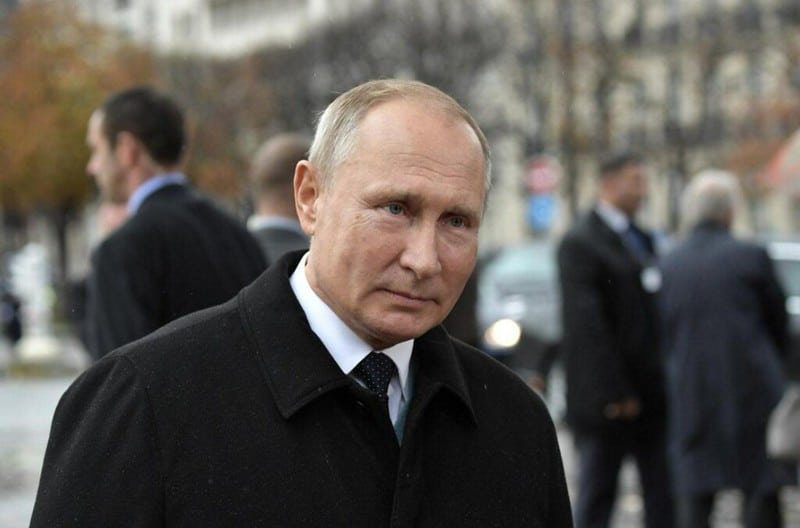Paranoid, angry, rambling. The long-awaited Putin speech on Ukraine baffled many who followed the Kremlin for decades. The sly, cunning Putin, familiar to many, was raging about ancient peoples, doubting Ukraine statehoods and alleging Ukraine of developing nukes. It is the image of an authoritarian leader at its most vulnerable - and its most reckless.
Later that night, Putin deployed a 'peace mission' into the freshly recognised 'republics' of Luhansk and Donetsk. Currently, it remains unclear whether Putin intends to control the LHR and the DHR or the complete area of the Donbass. In a quick reaction, the EU, UK and US said they would impose sanctions. The US and UK already imposed various sanctions on the DHR and LHR region. The biggest, most impactful sanctions, such as cutting off Russia from the international banking system SWIFT, are still on the table to deter Putin from entering the rest of Ukraine.
Looking back at Georgia 2008, it does not seem probable that sanctions deter Putin from executing his plans - whatever these may be. Western powers than did not agree on a coherent set of sanctions. Skip fourteen years, South Ossetia and Abkhazia are still pseudo-republics, de facto controlled by Russia. Without imposing heavy sanctions, the same fate surely lies ahead for the Luhansk and Donetsk regions. Furthermore, Putin reckons that the West does not want to go further than sanctions for Ukraine - as no one wants war in Europe. He possibly targets the complete Donbas region. Appeasing this blatant disregard of Ukraine's sovereignty gives the impression of a 21st century Sudetenland.
But also in Russia, war remains unpopular among its citizens. Recent surveys show that many Russians do not want armed conflict in Ukraine. However, when the situation on the ground deteriorates, public opinion can shift quickly, as happened after the annexation of Crimea. Above all, the deteriorating economic situation remains a key issue for many Russians. Heavy sanctions will hit the Russian economy and its people hard. However, at the moment, Putin and his leadership do not give the impression that they are very responsive to popular demand and political legitimacy. His power is unchallenged, as he has incarcerated or exiled nearly all political opposition.
Putin seems set for more. His speech, and yesterday's bizarre meeting of Russia's Security Council, give the impression of a revisionist Moscow political elite, longing back to the old days of power - resenting the 1991 USSR break-up. The narrative of 'NATO threatening Russia' can finally be ignored, it seems. Whatever will happen, the West should be prepared for more. It should support Ukraine's sovereignty and young democracy wherever it can.
Sources:
BBC Washington Post Reuters The Guardian
Photo: Flickr





